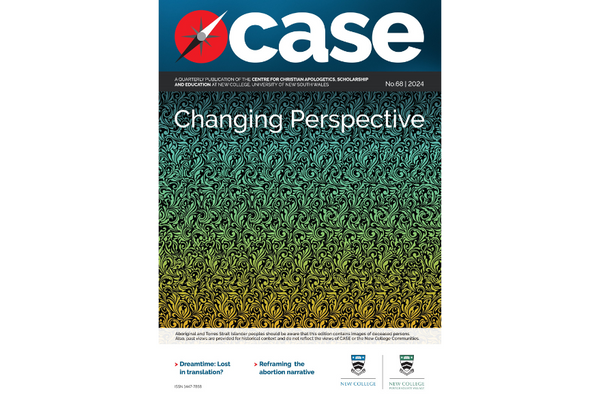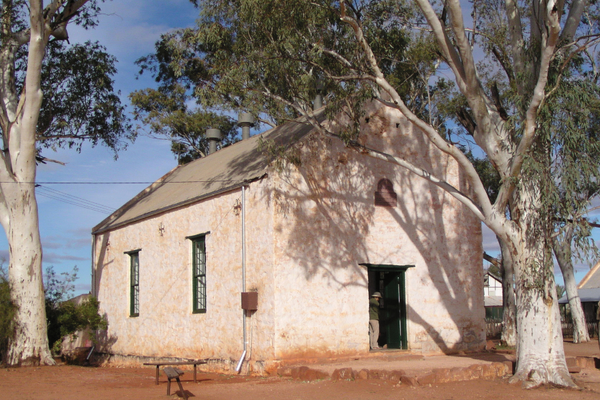A Just Reform? Commonwealth Changes to Higher Education Under a Christian Microscope

Unless you’ve been overseas for the last year you will have heard that the federal minister for education, Dr Brendan Nelson, has been reviewing higher education. Education (like health) has always been an important political agenda. While all Australians receive school education, not all are privileged to gain a place in university education. But since most say they wish to, people care about government action in this area.
As well, higher education is important in pragmatic terms; it employs over 80,000 people, generates total revenue of over $10 billion, and contributes 1.5% to Gross Domestic Product. Prior to the 1970s little more than 5% of people had access to the nation’s 15 universities. University education was free to this elite group, and many people who attended gained a scholarship to cover many daily expenses. Today, 40% of Australians attend almost 40 universities, it is no longer free and the majority of students are self-supporting. There have also been some major associated demographic shifts as the number of people attending universities has risen. More women attend university, more indigenous Australians gain places, and at some newer universities many people are attending university as the first family member to enrol in a degree (60% at UWS). Creeping credentialism has also led to a massive growth in postgraduate education, and there has been a trend towards double and multiple degrees.
So why has there been a review?
There have been many reasons offered as justification for a review of higher education, but three seem to dominate:
- Our universities need greater resources;
- Governance of individual universities and the administration of the whole sector has become large, unwieldy, bureaucratic and in the opinion of some, ineffective;
- International pressures have led to an increased need for our universities to be more competitive.
In addition to the above, the review itself has been framed around the claimed needs for greater sustainability, quality, equitable access and diversity within the system.
What have been the outcomes of the review?
There are too many to list here (visit the government’s website for more detail: www.dest.gov.au). Here are some of the most significant outcomes:
- $2.4 billion in new funding has been provided over the next 5 years.
- $459 million of the above is contingent on universities making governance and workplace productivity reforms.
- Adjustments to funding formulas will take place to ensure that institutions are paid according to discipline mixes with penalties if the mix varies substantially from an agreed profile. These changes will be linked to new Commonwealth contributions set for specific disciplines.
- Universities will be permitted to increase the proportion of self-funded places to 25% of total course numbers (only 10% for medicine) and charge up to 30% more than the HECS value (except for education and nursing).
- Government loans will be made available up to a limit $50,000 with the debt tied to the consumer price index (plus 3.5% per annum for a maximum of 10 years).
- Up to 5,000 new Commonwealth Learning Scholarships valued at $2,000 per annum will be introduced by 2007 with priority given to Indigenous and/or low socio-economic status groups.
- By 2007 approximately 2,000 new Commonwealth Accommodation Scholarships valued at $4,000 per annum (for up to 4 years) will be offered based on merit to rural and regional students.
- A range of initiatives have been planned to improve the quality of learning and teaching. This package includes a National Institute for Learning and Teaching in Higher Education, new teaching awards, and a $50 million performance fund.
As a Christian, I think about these things through the tenets of my faith. Sometimes, there are specific elements of a government policy on which Christian ideas are brought to bear; at other times, my response may be more general. On this issue, there are a number of concerns which relate to the Christian concern for the poor and underprivileged; there are also concerns about government control over what counts as education and how it can be taught. I welcome your thoughts on these issues, as we seek to wrestle with them from our own worldview perspectives.
1. The dominance of funding
At the broadest level, I find the review’s concentration on funding as the central concern to be disappointing. While the review has raised what I see as higher order concerns (e.g. issues of access to higher education for the poor, increased places for Indigenous Australians, etc), the review and the report that has resulted is dominated by how universities can gain more funding. The solution offered has been for universities to be allowed to charge more for courses and for them to increase their proportion of fee paying undergraduates. As a Christian, I’m concerned that the review hasn’t considered why the proportion of students from low income and disadvantaged groups has barely risen while university participation rates have risen from 5% to 40%. Nor has the review addressed in any way the consequences that increases in fees might have for students from poorer families.
2. The growth in higher education
A second order concern is that the review has not considered the desirability of further increases in the participation rates in higher education, nor who will actually be filling the places. While it seems right and just to allow more open access to higher education, is it necessary for 40% of the population to have university education? Could more taxpayer dollars be spent on technical and further training, workplace training and so on? Is the common good served by more and more people attending university, particularly if (as seems likely) they will be from the wealthier sections of the community?
Is higher education a right for everyone with its cost being shared by all tax payers, or should those who have the privilege of receiving it actually pay for some (if not most of the cost)? The latter has been the approach adopted by the government, but student unions have opposed this move arguing that if their parents had free higher education why shouldn’t they. At one level it might seem fair for the students of today to have the same deal as those in past decades, but one significant difference is that far more people now expect higher education. While a society might have wanted to invest heavily in 5% of its population to provide an elite education, the arguments for doing this for 40% of the population are harder to sustain, and the need to scrutinise who gains the places even more critical.
3. Providing equitable access
One of the most significant issues facing us is how we ensure that all young people have the same opportunities to gain places in universities. I would want to argue not for more students in higher education but for different students. Currently, many students have advantages in gaining places simply because they have attended schools with more resources and more experienced teachers. For example, city schools attract more experienced teachers, and private schools are often able to recruit the best teachers and have greater resources to support the education programs. Students living on the urban fringes of major cities like Sydney and Melbourne face different problems, with access to elite universities usually requiring them to leave home or travel great distances each day without the monetary resources to do either. Hence, students from poorer families have increased pressure to work. The changes flagged by the Nelson review will exacerbate these inequities with up to 25% of students being allowed to buy their places. It is also worth noting that two universities created to address the lack of opportunities for such students to have access to university education (UWS and VUT) have been disadvantaged by the Nelson reforms.
4. Spiritual and ethical development on campus
To some extent the Nelson reforms are a perfect mirror of a society that has become more self seeking, more materialistic and more determined to celebrated its great knowledge and achievements. As a Christian, I want universities to provide an opportunity for students to grow not just intellectually but socially, emotionally and spiritually. Universities have always educated the leaders of the future. The review of higher education has at no stage addressed how university education can help to build character or challenge all students to consider ethical standards and actions within and outside their field of study. The modern student works on average for 14 hours per week to fund their education. They have minimal time for anything outside their courses and paid work. Students spend as little time on campus as possible, and participate in few clubs and organizations. Indeed, the average university timetable works against community involvement by not allowing any common times for lunch or student organizations.
Thinking through a Christian response
I am writing just two days before Christmas, having been reflecting on the radical kingship of the Lord Jesus. The prophet Isaiah wrote that the Messiah would come as a King of justice (Isaiah 11:3-5). He would not simply judge by what he sees with his eyes or what he hears with his ears. Instead, Isaiah prophesies that “…with righteousness he will judge the needy, with justice he will give decisions for the poor of the earth” (Isaiah 11:4). When Jesus did come as the Messiah he demonstrated just this—here was a king in the line of David who was wildly different from all previous leaders. He was a king who came “…to preach good news to the poor…to proclaim freedom for prisoners…recovery of sight for the blind, to release the oppressed, to proclaim the year of the Lord’s favour” (Luke 4:18-19).
Jesus’ concern for the weak, his rebuking of the rich and powerful in Jewish society and his preparedness to challenge societal norms that oppressed some and privileged others, should provide motivation to look at all aspects of social policy with different eyes. While God has ordained governments to rule over us, we need to apply radically different mindsets to our analysis of the policies they frame, and if we see injustices within them we should challenge them.
Christians are to be the last people to respond to government initiatives based on selfish interests and ambitions. Isaiah challenged the nation of Israel to “Seek justice, encourage the oppressed. Defend the cause of the fatherless, plead the case of the widow” (Isa 1:17). Are Christian views on government policies framed by worldly concerns, or are they shaped by the fact that we submit to a king who is different? This offers something of a challenge to all who are considering the impact of the Nelson reforms.
Leave a comment
Comments will be approved before showing up.



